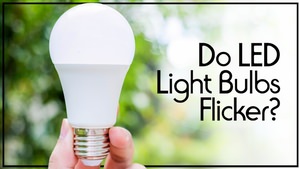Are you afraid of the dark? Over 30% of people sleep with the lights on, but how does this really affect your sleep quality?

In short, yes, it’s unhealthy to sleep with the lights on, but here we cover all the information you need to answer this question thoroughly.
Why Do We Sleep with the Lights On?
Whether it’s a soothing night light or a steady glow seeping through the door hinges, we usually have some sort of light while we sleep. Rarely is it an issue in small amounts like this – but why do these minimal light sources bring so much comfort?
We’re Afraid of the Dark
Everyone has been afraid of the dark at some point in their life. Heck, I still get the creepy-crawlies walking up from my basement after I’ve turned off the lights.
But what is it about darkness that’s so terrifying to us?
Well, it’s a combination of things. For starters, we lose one of our main senses in the dark: sight. Without it, we are unable to detect who or what is around us, which means we’re unprepared and potentially in danger. And who can really sleep when they’re feeling unsafe?
Thankfully, the monsters under the bed haven’t (really) been a fear of anyone’s since the third grade. Still – a dark room at night is spooky, and no one is wrong for thinking so. :)
We’ve Made It a Habit
We all have those habits we don’t realize we have – and sleeping with a form of light could be one of them. You may not even realize you do it.
Night lights are incredibly common and can be found in movies, music, and even here! While you can go overboard with your nighttime illumination, night lights are a great way to offer a miniscule amount of light without being too disruptive to your sleep. And, if you want to play it safe, try setting one up in the hallway outside of your room as opposed to next to your bed.
Being on your phone late at night could also be a contributing factor. Studies show that over 70% of teenagers with phones admit to being on them just before or while falling asleep; other surveys show that over 65% of all adults sleep with their phones within reach.

What are the Negative Health Effects?
A 2022 study was done by Dr. Phyllis Zee, where 20 healthy test subjects slept one night in a somewhat dark room and another night in a more illuminated room. Researchers recorded their body’s responses and concluded the following negative health effects:
- Disrupted REM sleep schedule
- Decreased levels of melatonin
- Fatigue
- Stunted alertness
- Inability to focus
Lights may seem like an essential part of easing our bodies into a peaceful sleep to be well rested for the next day. However, it’s really what our bodies are exposed to while we're sleeping that help us stay functional and healthy.
Healthier Alternatives to Sleeping with the Lights On
Still in need of something to help you more comfortably doze off? Luckily there are a variety of substitutes that are far less harmful than leaving that bedside lamp on.
Noise Machines
Whether they’re playing white noise or elegant humpback whale calls, noise machines are an excellent way to help you fall asleep quicker. Not only that, but they might actually provide you with a deeper, more complete night’s rest.
Music & Podcasts
Music, podcasts and other forms of soothing sounds can help relax your brain and quiet any overflow stress from the day. It acts as a type of meditation that slows your body down and prepares it to engage in deeper sleep.
From calming piano soundtracks to acoustic soundscapes, there are many playlists to accompany your rest. Or, if you really want something unique, try metal instead. ;)
Light Timer
If you’re still afraid of flipping off that light switch, there’s another alternative that doesn’t strip you of that comforting glow. Attaching a timer to your light will allow it to shut off automatically after a short amount of time. This prevents your sleep from being disrupted throughout the night.

Sleeping with lights on is not great for our overall health. There are benefits to getting the proper sleep, so you better get over your fear of monsters in the closet!
At the end of the day, any amount of sleep is better than none, so don’t let it keep you up at night! :)






